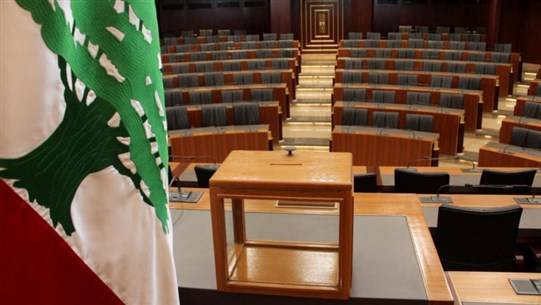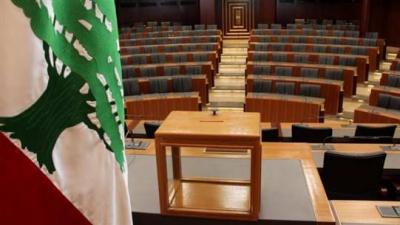Lebanon has overcome the crisis posed by the absence of a new president, as the reckless faction that tried to instill fear regarding the resigned government's approach to filling the presidential vacancy conceded, after weeks of constitutional debate about the validity of the resigned cabinet's actions, to the parliamentary recommendation that Prime Minister Najib Mikati's government continue to handle business affairs. This is in light of the risks of descending into "constitutional chaos," which is, in essence, societal chaos when the authority fails to maintain public order.
Last Thursday's scene encapsulated the state of tension not only for the Free Patriotic Movement (FPM), which will remain for a considerable time believing in illusory victories attributed to itself, dismissing other political factions and parties, as it tries to preserve loyalty to its current leadership represented by current MP Gibran Bassil, who is unable to dare to run for the presidency or behave in accordance with the results of the parliamentary elections. Bassil remains adamant about claiming to be the largest Christian parliamentary bloc, while another Christian faction, which also claims to be the larger one, should open the door for the leader of the Lebanese Forces party, Samir Geagea, to venture for the presidency or to support a candidate for the presidency, like MP Michel Moawad or others identified by the faction opposing the Free Patriotic Movement-Hezbollah alliance, which lost its parliamentary majority after the May 22 elections.
Amid a scene manipulated by elements of weakness attempting to suggest elements of strength, the outcomes of the Taif Forum organized by the Saudi Embassy in Beirut are significant in that the Taif Agreement is considered the cornerstone of maintaining coexistence and national unity among Lebanese amidst strong divisions, as demonstrated by conflicting positions regarding the parliamentary session aimed at electing a new president, or the inability to organize disputes in a phase where collisions become costly.
The factions and blocs invited to the forum had no choice but to participate, from the perspective that Saudi Arabia seeks a role in Lebanese affairs to assist in maintaining internal stability, considering the same factors that led to the general stability after signing the National Accord Document and establishing the executive mechanism to become a constitution that rebuilds institutions, starting from electing a president to parliamentary elections and a new government, as well as a cycle of services and investments.
The Taif Agreement emerged from the ashes of the fragmented military government led by General Michel Aoun after the term of former president Amine Gemayel ended in 1988. Presently, there are attempts to emphasize the continuity of the Taif Agreement in the midst of President Aoun's term, where his supporters nearly attempted to turn back the clock without success. This raises the need for Arab-international sponsorship to put mechanisms into place for the re-election of a president, taking necessary lessons from the reckless experiences that led the country and its people to a position ranking first in corruption, the collapse of the national currency, declining salaries and services, skyrocketing prices of food and services, leading to zero electricity and similar conditions of zero water.
Those involved in organizing the internal timing process while waiting for this sponsorship, which is not easily formed, understand that the Lebanese parliamentary movement, whether in Nejmeh Square or another geographical level, does not rely on an "effective mind" to transform potential (i.e., readiness) for election into what exists in reality (i.e., election when that election materializes).
In this idle time, political and living conditions progress monotonously, oscillating between the rising or falling dollar exchange rate and the promises of "electricity rationing" ranging from 5 to 8 to 10 hours a month, as well as heavy anticipations for a budget that has not resolved its financial needs yet by raising the customs dollar price to 15,000 Lebanese pounds.
On the political front, Prime Minister Mikati behaves as the head of state from an procedural standpoint, accompanied by ministers, including those who were once gathered by Gibran Bassil, whom he has since advised not to partake in unnecessary cabinet sessions and the like, given the narrow scope of business management. While the parliamentary council is progressing in agreeing to the International Monetary Fund's lending demands, Thursday's fifth session for presidential elections will witness the emergence of the March 8 candidate, former MP Sleiman Frangieh, who former MP Walid Jumblatt is working to prevent from reaching Baabda due to his relationship with President Bashar Assad.
Amid the March 8 axis, supported by Russia, Syria, and Iran, and the March 14 axis, supported by the United States and Arab countries, especially those of moderate stances, especially the Gulf states, the contest between current MP Michel Moawad and former Frangieh is clearly observed. The scene may retreat in a moment of maturity between Army Commander Joseph Aoun and Frangieh, in elections that will not deviate from the norm regarding Arab-international-regional sponsorship or reaching an agreement to bring Aoun or Frangieh to Baabda.




